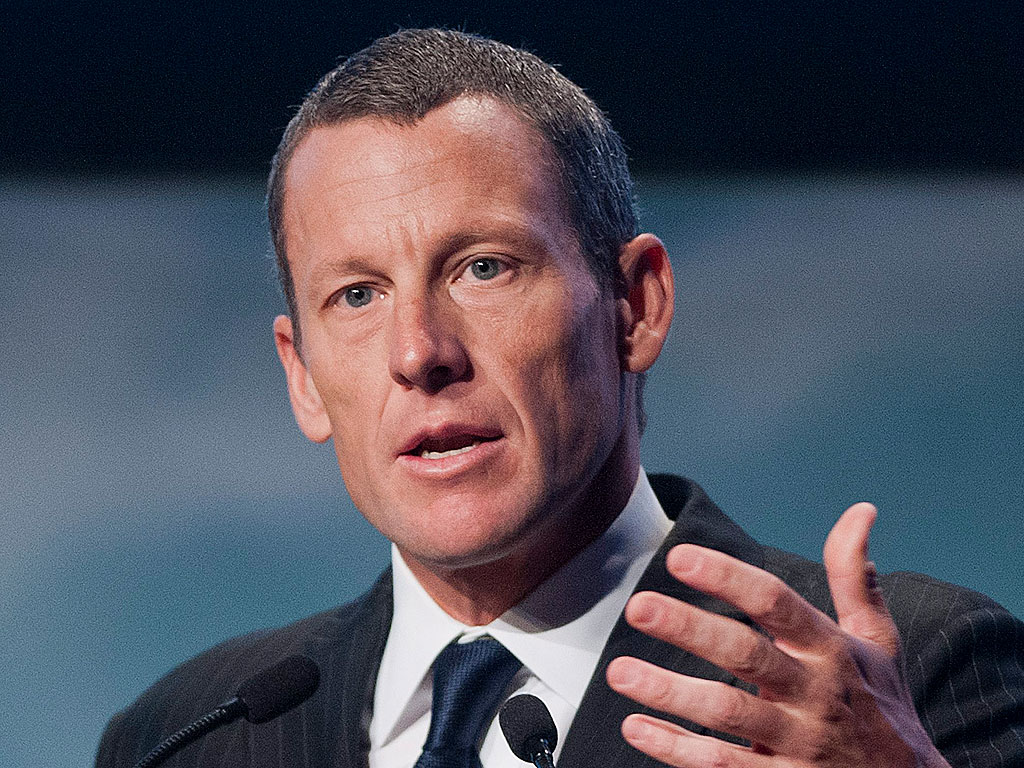

Lance Armstrong was back in court yesterday, as proceedings continued in his long drawn-out case with the federal government.
The disgraced cyclist was seen sitting quietly, as the US government continued its civil action which could result in nearly $100 million judgment against him.
U.S. District Judge Christopher Cooper heard arguments from attorneys on both sides in a lawsuit, which is now about to enter its fourth year of litigation, alleging that Armstrong knowingly defrauded the US government of money then he took illegal performance enhancing drugs in violation of his sponsorship agreement with the US Postal Service.
“Lance Armstrong created a flood of lies that saturated every invoice that was submitted,” U.S. Justice Department attorney Robert Chandler told Cooper. “He lied directly to the Postal Service. He had others lie directly to the Postal Service on his behalf. He made countless public statements on television and to print reporters…. false statements perpetuating his lie that he wasn’t doping.”
Armstrong’s attorney, Elliot Peters, disagreed and is asking that the case be thrown out in summary judgment by Cooper, or at least that it be drastically reduced. After two hours of arguments, Cooper said he was taking the matter under advisement. He might not rule until 2017 but has several options, including throwing the whole case out in summary judgment, throwing out parts of it, or greenlighting the whole suit for a jury trial. No trial date has been set.
“This is the fun part,” Cooper said at the start of yesterday’s proceedings.
The government is suing Armstrong on behalf of the Postal Service, which paid $32.3 million to sponsor Armstrong’s cycling team from 2000 to 2004. The government now wants that money back, arguing that the cycling team violated its sponsorship by doping and that Armstrong covered it up and lied about it in order to keep getting paid.
In essence, it’s a dispute over government contracts — and whether the Postal Service got ripped off because of Armstrong’s false claims. If the government’s case succeeds, Armstrong could be on the hook for triple damages under the False Claims Act — nearly $100 million.
Peters argued that the Postal Service was not damaged by the doping and instead gained far more than the $32.3 million they paid for the sponsorship. To support this, he has cited Postal Service documents that estimated the USPS received more than $160 million in media exposure from the sponsorship from 2001 to 2004.
He also showed Cooper a 2012 e-mail from a Postal Service official that said, “USPS got more than it paid for and is not a victim of fraud.”
Cooper asked if a jury should also consider the “diminution in value” to the sponsorship after it was disclosed that the cycling team had been using banned drugs and blood transfusions to boost itself on the bike. The government has cited more than a billion negative media impressions for the Postal Service related to the doping scandal.
Peters responded that there was no evidence that such publicity damaged the Postal Service.
“There’s no science that would stand for the proposition that negative publicity about an athlete who competed for a sponsored team which occurs eight years after the end of the sponsorship has any impact on the sponsor,” Peters told the judge.
Armstrong’s legal team also maintain that the seven-time Tour de France winner did;t submit false claims under the law and have noted that the invoices submitted for payment came not from him but from the cycling team’s owner, the now defunct Tailwind Sports.
However, Chandler countered by saying, Armstrong’s lies “saturated” those invoices even if the Postal Service contract wasn’t directly with Armstrong but with Tailwind. The government says it contracted for a clean cycling team but didn’t get one, making the sponsorship essentially worthless.
“This was not the brand advertising we were promised,” Justice Department attorney David Finkelstein said. “This is not the brand advertising we bargained for. This was media we specifically bargained to avoid. Any loss in value can be the basis for damages… It ought to go to jury.”
Armstrong vehemently denied using performance enhancing for more than a decade, before finally admitting it in a televised interview with Oprah Winfrey in January 2013.
As a result, he received a life-time ban from cycling and was also stripped stripped of all seven of his Tour de France victories.
Since his confession, Armstrong has agreed to pay more than $10 million to settle other fraud lawsuits filed against him. But this is by far his biggest legal risk yet. If he loses this one, he also might have to pay part of the damages to Floyd Landis, another confessed doper and former Armstrong teammate. Landis originally filed this suit under seal in 2010 and stands to receive a cut of it as a government whistleblower if it succeeds. The government joined Landis’ case in 2013.
Landis did not appear in court Wednesday. His attorney, Paul Scott, was there on his behalf and argued that Armstrong should be held accountable because otherwise it would set a terrible precedent that was not in the public interest. “By concealing their fraud for as long as they did, they want to be rewarded for it,” Scott said of Armstrong and Tailwind.
He said Armstrong’s entire enterprise with the Postal Service was “morally tainted at its core.”
“What about the impact that this has on the United States of America?” Scott asked the judge.


